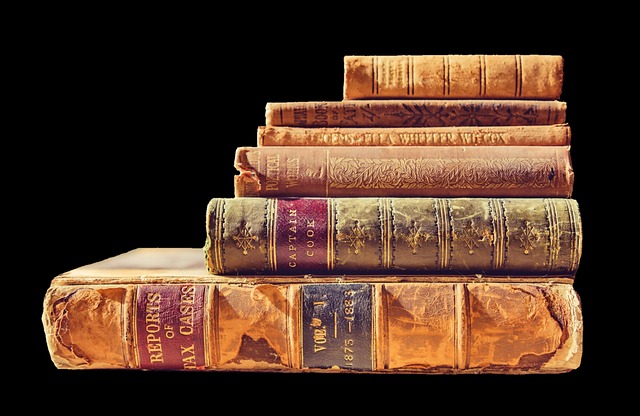Donated Library of Charles Raymond Lewis and Judge A.W. Frater

One of the sorrows of our digital age is the gradually waning importance of printed books in the life of lawyers. Until recently, books have dominated the life of the law. Thomas Jefferson once wrote: “Books constitute capital. A library book lasts as long as a house, for hundreds of years. It is not, then, an article of mere consumption but fairly of capital, and often in the case of professional men, setting out in life, it is their only capital.” Lawyers bought, sold, borrowed, traded, and even bequeathed law books as integral tools of their day-to-day practice. Many lawyers signed the inner cover or title page to show ownership as these books were both expensive and of great value. These signatures give special collections librarians and collectors the opportunity to trace provenance and learn something about the readers of the book. Some readers even annotated their books, giving historians further insight in to the life of the law.
Law libraries occasionally are offered a collection of books. We recently accepted one from the Morris-Sockle Law Firm here in Olympia consisting of 83 books that had been rescued from the trash in Shelton back in the 1970s. These books are a wonderful example of what an early 20th century lawyer would have had in their collection and the ownership signatures show an interesting family tree. Predictably, the collection includes most of the first 55 volumes of Washington Reports, Washington Territorial Reports, miscellaneous volumes of Ballinger and Remington Washington statutes and session laws, the first volume of Washington Attorney General Opinions, and Horan’s nine volume Washington Digest. The treatises are more interesting as they show the depth of thought available to a small-town lawyer: Clark on Contracts, Pomeroy on Remedies, Greenleaf’s Evidence, Shipman on Equity Pleading, and others. The collection includes American editions of the ubiquitous commentaries from Blackstone, Chitty, and Kent, as well as Robert C. Morris’s International Law and Procedure (1911). Even then, Washington was an important exporting state of timber and agricultural products.
Several books tell us more about the owner, Charles Raymond Lewis (who joined the Washington State Bar in 1920 and eventually served as the City Attorney in Shelton. Lewis signed his 1882 copy of Wharton’s Criminal Law (8th ed.) that had been previously signed by Judge A.W. Frater, his father-in-law, Archibald Wanless Frater (1856-1925) a legislator, then King County judge, who was elected to the bench in 1904 and served until his death in 1925. A.W. Frater’s son John was also a King County Superior Court judge. Judge Frater was eulogized in the House Journal on January 4, 1926 by Representative John Soule:
I esteem it a great honor to speak of the memory of that rugged old citizen and lawyer, the late Judge A. W. Frater of Seattle. And it is very fitting that I should do this, for it was a long way back in the eighties that two young men came out to the far west to build their fortunes and settle in the city of Snohomish, one to practice medicine and the other to practice the profession of law. One was my father, the other was A.W. Frater…He was fearless in his work on the bench, and was known for his complete knowledge of the law, which he was ever willing to uphold, but with all did he ever temper justice with mercy.
Amusingly, the Washington State Library highlights such case where Judge Frater sentenced a man to one minute in jail. Judge Frater also sat on the “Holy Roller” love cult murder trial of Ester Mitchell, which resulted in a reversal by the Washington Supreme Court on insanity defense issues.
Lewis married Frater’s daughter, Helen Dean Frater Lewis (1890-1975), and they had one child, John Frater Lewis (1919-2015). Other books from Judge Frater include Tiedeman’s Limitations of Police Power (1886), and the Municipal Code of the City of Seattle. Together with The Charter Adopted in 1900 (1902), and Blashfield’s Instructions to Juries Vol.vol. 2 (1903) which was undoubtedly useful when Judge Frater took the bench in 1904. Mrs. MM Knight gave Lewis the four-volume set by Johnston & Woodburn, American Eloquence: Studies in American Political History (1896), important material in a time when oratory was a critical skill for young lawyers.
Books tell great stories. But the new digital world helps us chase leads and learn more about historical figures. This donation allows us to learn so much about Washington judges and lawyers working a century ago.
